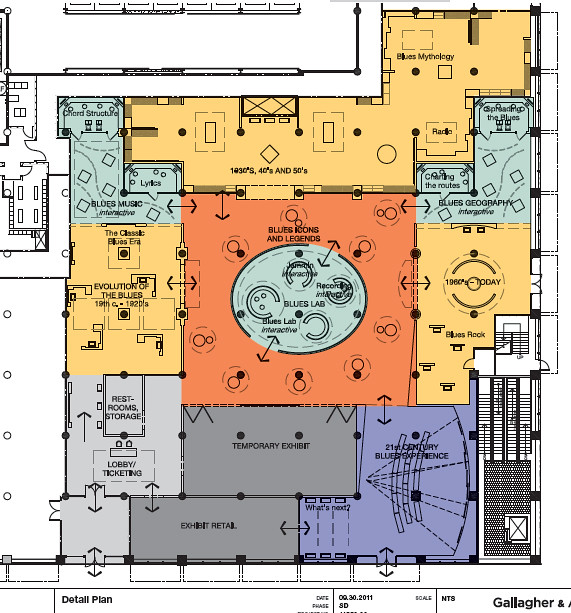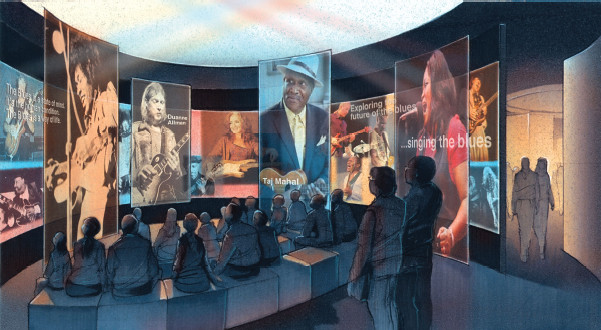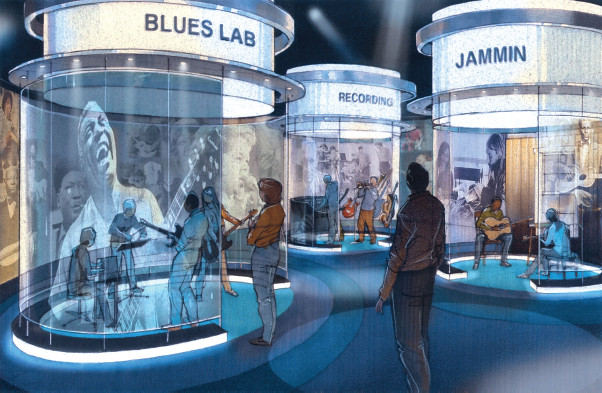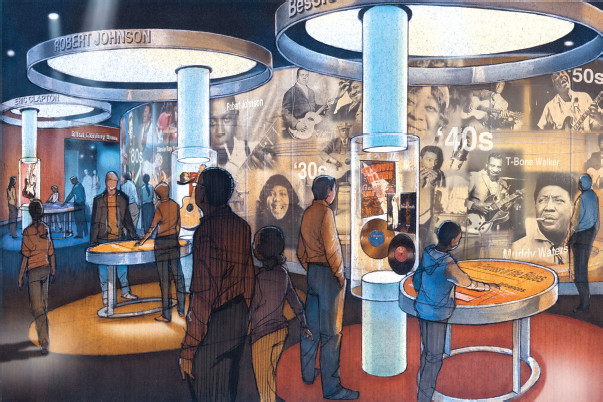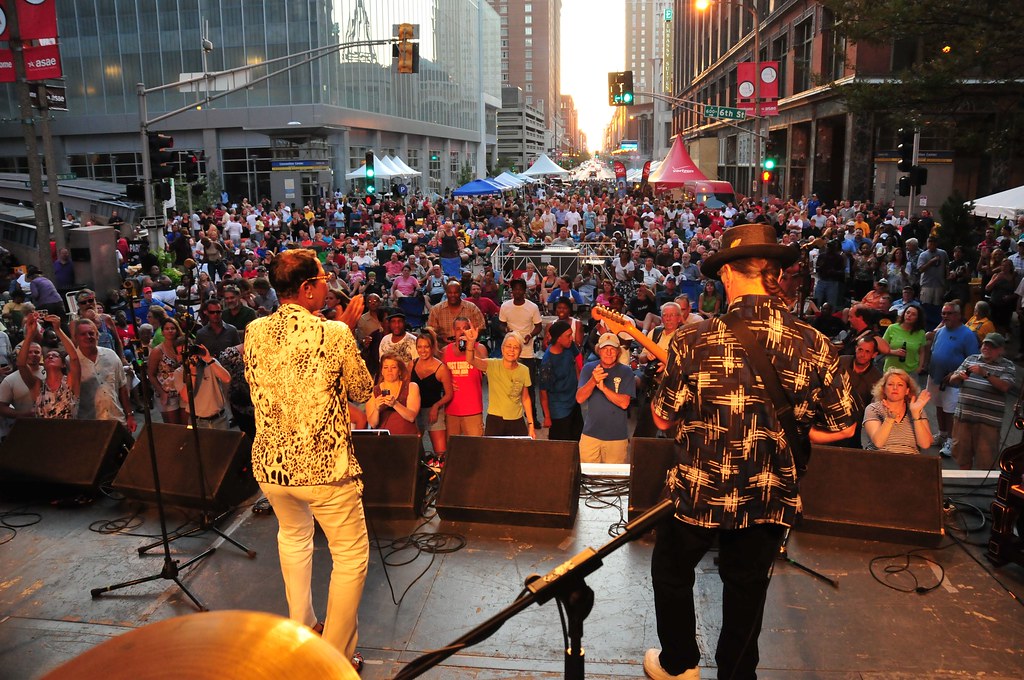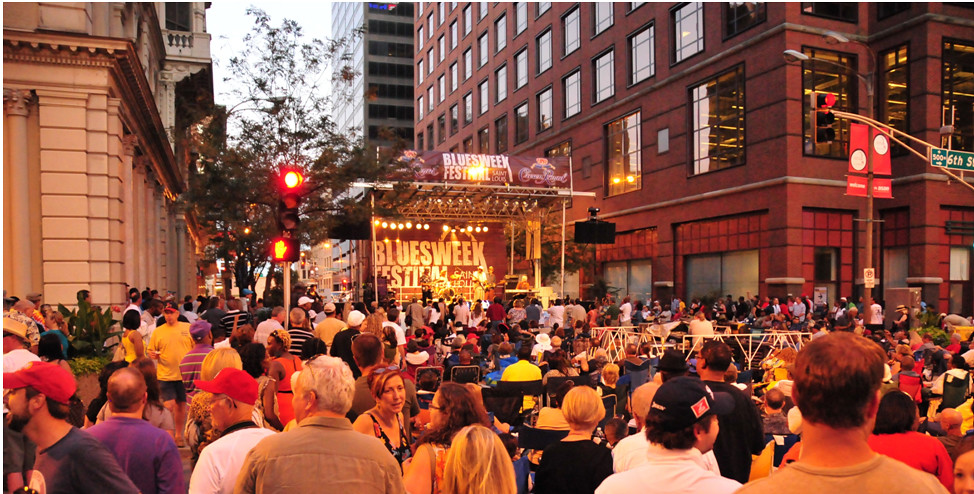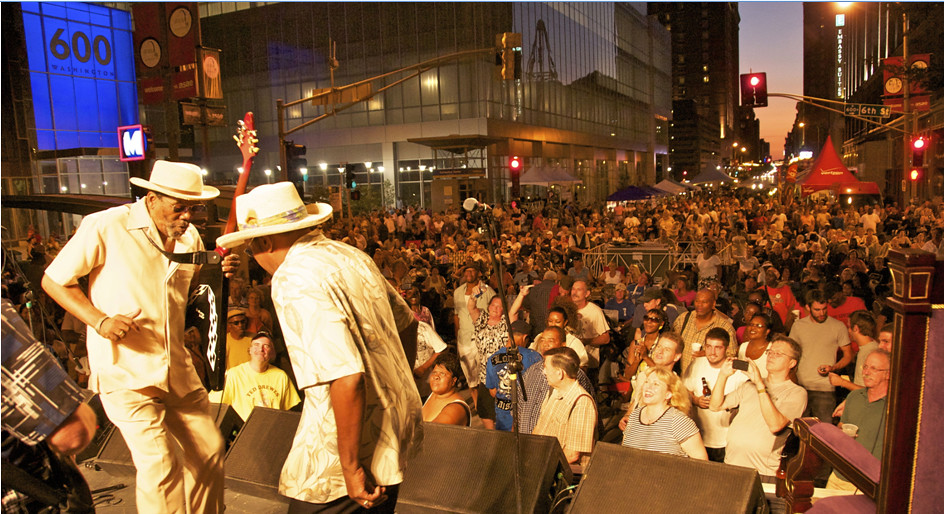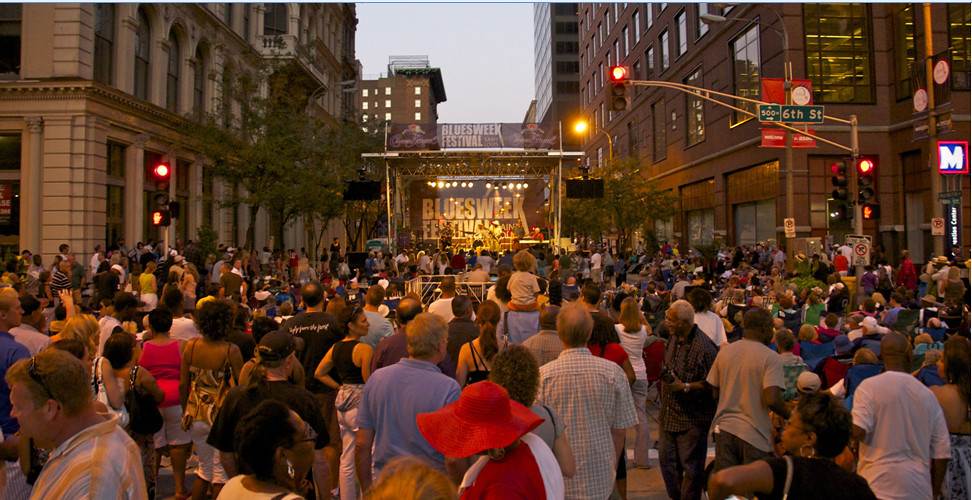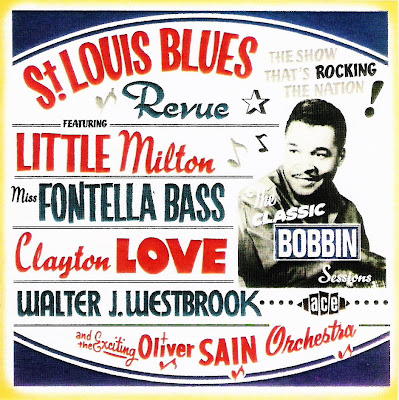I'm just going to address a few comments because to me most of these comments are very interesting.
#1. There is a quote: "St. Louis had "contributors", but not a scene." My response: Seriously? And this guy wrote for a newspaper? You can't spawn "contributors" without having a "scene". That's common sense. Researching the St. Louis Blues scene is not hard at all. Tons of Bluesmen, many of them well-regarded in Blues circle, who migrated to St. Louis and made names for themselves locally and nationally. They came primarily from Mississippi and Arkansas, but others came from Tennessee and Alabama. Many local Bluesmen nurtured newcomers to St. Louis and they fed off each other resulting in a vibrant Blues scene.
#2. The fact that the "Father of the Blues" (W.C. Handy) did not only write and compose "St. Louis Blues", which is one of the most recorded Blues and jazz songs ever, while in St. Louis, he actually lived, worked and ultimately became homeless in St. Louis. Handy was likely attracted to St. Louis by the ragtime scene. Although he did not live in St. Louis long, he had more than one stint in St. Louis. He was also influenced by St. Louis Bluesmen. The Mississippi River was a conduit for traveling bluesmen and they performed in cities up and down the Mississippi River for money.
Handy's most popular piece was created in St. Louis. And before his untimely death in 1958, W.C. Handy was scheduled to be in St. Louis to attend the premier of a Paramount film, which was dedicated to his music, called none other than, "St. Louis Blues".
Also this from
W.C. Handy’s March 29th, 1958 obituary...
"Mr. and Mrs. Handy had planned to fly to St. Louis on April 7 for the opening of the Paramount film "St. Louis Blues," a fictionalized biography of the composer, and featuring, of course, many of his blues songs. The film will open also in New York and other major cities on the same date."
So although he wasn't a native and the "St. Louis Blues" song wasn't put on a St. Louis-based imprint, his mere presence as the Father of Blues and earlier stint in St. Louis easily validates St. Louis' role and influence in the evolution of Blues and Jazz.
#3. St. Louis was a "halfway" point between Memphis and Chicago for some Bluesmen. And that's nothing to be ashamed. At least they came. Most musicians are transients. This holds true even today. Many musicians choose to go where they feel they have the best chance to fulfill their dreams. Keep in mind too that while some left, others preferred St. Louis, others stayed until death, then many of the musicians that left came back. While K.C. can lay claim to Charlie Parker's birthplace, Count Basie was not a native of Kansas City and he only lived there for about seven or eight years. Basie eventually moved his band to New York City and Charlie Parker didn't even want to be buried in Kansas City. However, I won't diminish KC's role in Jazz music.
#4. A commenter suggested that St. Louis was not an integral part of the Blues music like Kansas City was on Jazz.
Absolutely bogus. Ever heard of St. Louis Boogie Woogie that was popularized by
"Pine Top" Smith and
Roosevelt Sykes. "Pine Top" Smith had one of the first "boogie woogie" style recordings to make a hit. Pianist Roosevelt Sykes was another influence on St. Louis blues. His barrelhouse (early boogie-woogie) style made him very popular in St. Louis and throughout the blues circuit (
Source). Read up on them. In regards to Jazz, while Parker was a central figure (one of the father's) in the development of bebop jazz, he did not do it alone. Louis Armstrong and Dizzy Gillespie were the premier figures of bebop jazz. On the other hand, St. Louis' own Miles Davis ushered in the Birth of The Cool. And he pioneered it alone.
#5. Jump Blues was one of the dominate forms of Blues cultivated in Kansas City just as piano-blues, early boogie woogie and jump-blues were cultivated in St. Louis. In essence,
both cities were incubators for the jump-blues music scene. Brinkley, Arkansas-native Louis Jordan, considered the father of jump-blues and R&B, and others performed jump-blues, which was a precursor to R&B, in St. Louis and Kansas City. Louis Jordan lived in St. Louis for a short time, eventually married a woman from St. Louis and he is buried in St. Louis. His headstone allegedly reads, "I made the Blues jump." Both Chuck Berry and Ike Turner cited Jordan as a musical influence.
#6. Someone mentioned, that the title (of "National" museum) must be earned, not self-declared.
Unbelievable comment to say the least. To its credit, St. Louis had the King of Ragtime (Scott Joplin), the Father of the Blues (W.C. Handy), the
Father of Rock and Roll (Chuck Berry) and Ike Turner, who was very influential in early Rock and Roll and R&B. All of them called St. Louis home for a period of time and/or ultimately produced their best work in St. Louis. All them were Bluesman, the exception being Joplin, although he could be considered a Blues pioneer. Please. A national museum has been declared because it has been earned. What you are willing to "grant" is irrelevant. St. Louis Blues history speaks for itself.
#7. I wouldn't call Bobbin Records a failed imprint because it did have marginal success, but not longevity. Bobbin, simply put, couldn't keep up with the numerous Chicago labels. St. Louis had other labels, but Chicago and Memphis proved formidable, which is more of a testament to the people running the imprints in St. Louis than St. Louis as an authentic Blues City. It's also not a reflection on the quality of Bluesmen/Blueswomen that called St. Louis home. However, keep in mind that Chess isn't around either. Stax died and has been revived recently.
#8. Quote: "I am not ready to crown St. Louis some Blues capital."
It doesn't matter if you are ready or not. St. Louis certainly is not the capital of the Blues because that would easily go to the Deltas or Memphis; and the St. Louis region knows this. However, St. Louis is easily a significant epicenter (or major cradle) for Blues history and music. It would be hard for anyone - including a scholar - to ignore St. Louis' major impact on the Blues and American music in general.
